Post
A catch
Save a catch to start your fishing logbook. You will be able to to share it with the community if yo want!
A fishing trip
Post an ad to go fishing with other fishermen
Save a catch to start your fishing logbook. You will be able to to share it with the community if yo want!
Post an ad to go fishing with other fishermen
Share a thought, a question with the community
My favorite cities
×Join our 6 fishermen and our 2 cofishermen in Newport-Beach in Orange. The fishing forecast is currently 3.3. The most caught fishes here are the schoolmaster fish, the crevalle jack, the red grouper and the ladyfish. Come try the most famous fishing techniques like the surf fishing, angling - using natural bait, trolling for bonito or angling - using floats.
Our fishing forecast of Newport Beach indicates the best time to go fishing in this city.
The Schoolmaster fish
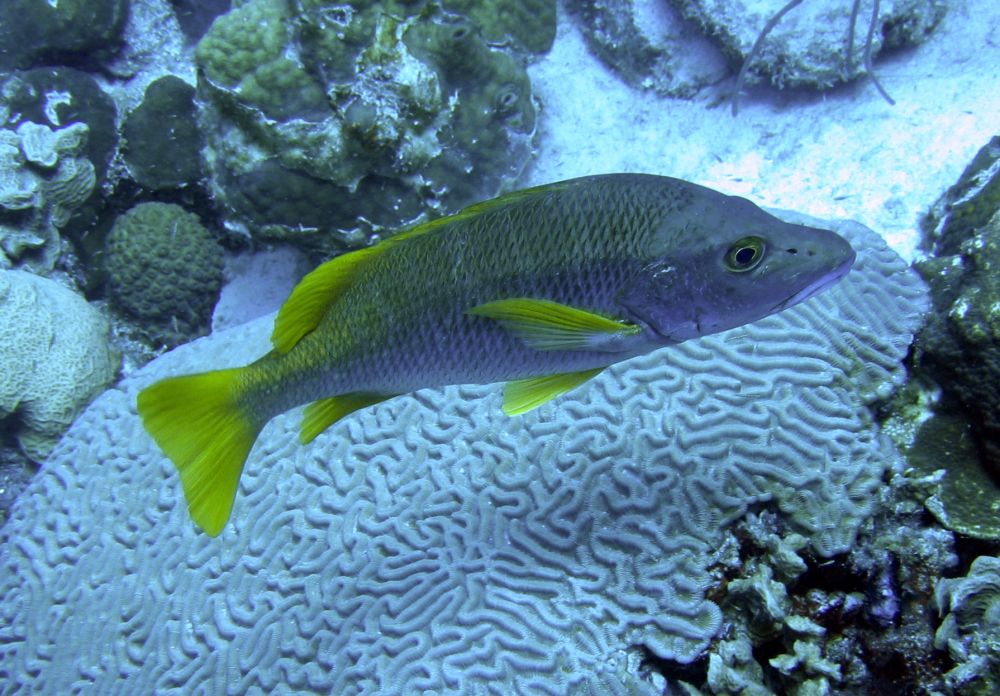
The Schoolmaster fish belongs to the Lutjanidae fish. They reach a maximum of 61 cm long and 3.6 kg in weight, but are normally in the 30 cm to 35 cm range. It has a lifespan of 19 years. Its spawning and fishing season depends on the location. Schoolmaster have a robust, slightly compressed body, moderately deep, with a pointed head. The greatest depth is more than a third of its standard length. The head is broad, as long as the depth of the body; the profile is straight from the muzzle to the nape of the neck, then regularly arched to the tail. Their triangular snout is long and pointed, with a large mouth. The notch and the pre-seal button are small. One of the upper pairs of canines is significantly larger than the anterior teeth of the lower jaw, visible when the mouth is closed. Vomer and the palatins both have teeth. There are no teeth on ectopterygoids. In addition to an anchor-shaped dental patch on the vomer with a median posterior extension, 5 to 7 gills at the first plantar arch of the upper limb and 11 to 15 lower limbs, totalling 17 to 22. The color is olive grey to brownish on the back and upper sides, with a yellow to reddish tinge around the head. The lower sides and belly are lighter; no dark lateral spots under the front of the soft dorsal fin. There are 8 narrow, pale vertical bars on the side of the body that may be pale or absent in large adults. A solid or broken blue line extends over the head under the eyes and may disappear with growth. From the up
The Schoolmaster fish is a famous fish you can catch in Newport Beach.The Crevalle Jack
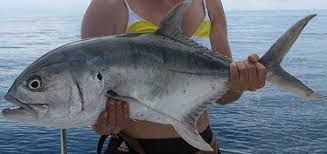
The Crevalle Jack belongs to the Carangidae family. The maximum height is about 115 cm long for a weight of 12 kg, but most adult individuals are about 70 cm long for a weight of about 3 kg. It can live up to 17 years. It breeds from March to September. It can be fished all year round. The body is elongated and fairly flattened and, like all carangidae, the pectoral fins are shaped like a sickle. Two thorns exist in front of the anal fins. The small scales are silvered laterally, but the dorsal part is blue-green mixed with golden reflections. The anal fin is bright yellow. It has a very specific black spot on the edge of the lid.
The Crevalle Jack is a famous fish you can catch in Newport Beach.The Red Grouper
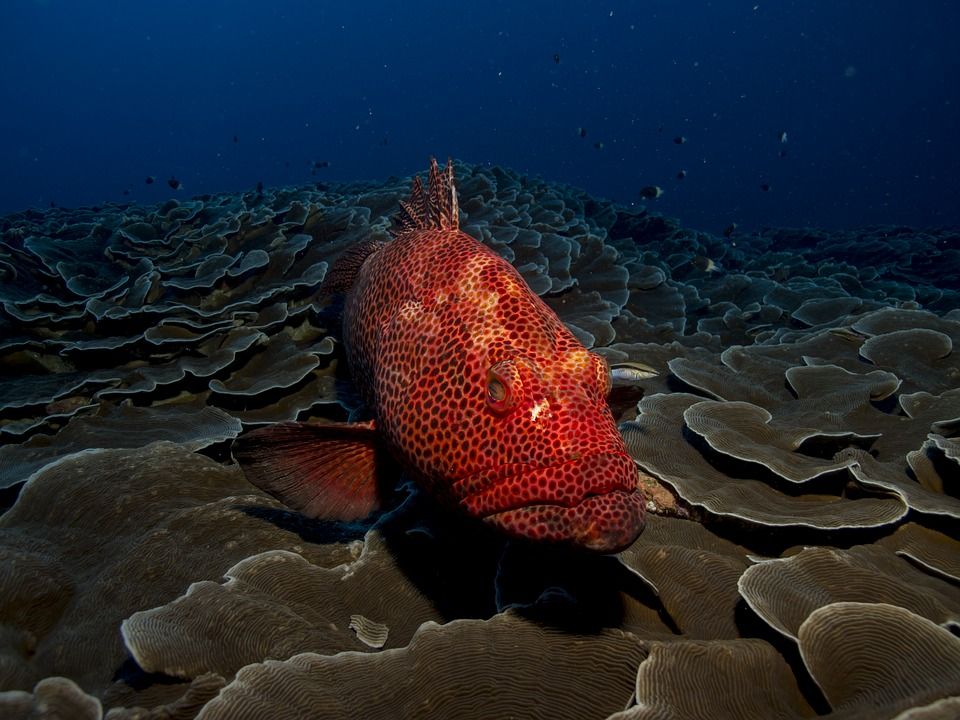
The Red Grouper belongs to the Serranidae family. The Red grouper reaches a maximum total length of 125 cm and a maximum declared weight of 23.0 kg. Red Groupers are thought to have a lifespan of about 25-30 years. They breed from January to April. It is abundant at the end of summer. The red grouper is a robust, medium-sized fish. It has large eyes and differs in size, the anterior pair being slightly smaller than the posterior pair. Pelvic fins are shorter than pectoral fins. The pelvic fins are inserted behind the pectoral fins on the body. The red grouper has scales and thick skin at the base of the dorsal and anal fins. The caudal fin is truncated and the caudal peduncle has no saddle. The head and body of the red grouper are dark reddish brown in color, then fading to pink or reddish on the sides and ventral side. Light-colored spots may be observed scattered over the body and small black spots may be present around the eyes. The anal, dorsal and caudal fins have dark margins. When the fish is resting, the coloring becomes more split, resembling the Nassau grouper.
The Red Grouper is a famous fish you can catch in Newport Beach.The Ladyfish
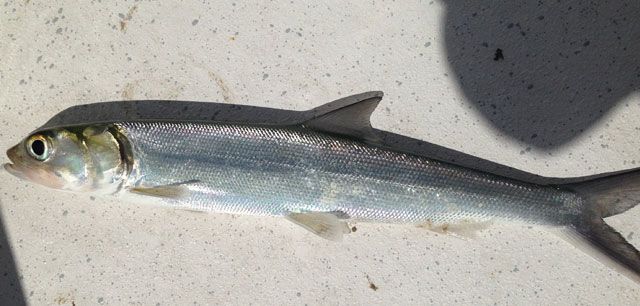
The Ladyfish belongs to the Elopidae family. The adult size is about 1 m for about 6 kg. It has a lifespan of 6 years at least. It can breed throughout the year. It can be fished all year. This fish has an elongated, thin and robust body with a large, deeply forked caudal fin. The body is covered with small, thin, silvery scales. The lateral line runs along the fish. The ladyfish has a small and pointed head with a large terminal mouth. The caudal lobes of ladyfish are long and thin. Dorsally, the ladyfish is silvery blue to greenish, while ventrally and laterally, it is silvery. The dorsal and caudal fins are yellowish to silvery and the pectoral and pelvic fins are speckled and pale.
The Ladyfish is a famous fish you can catch in Newport Beach.The African Pompano
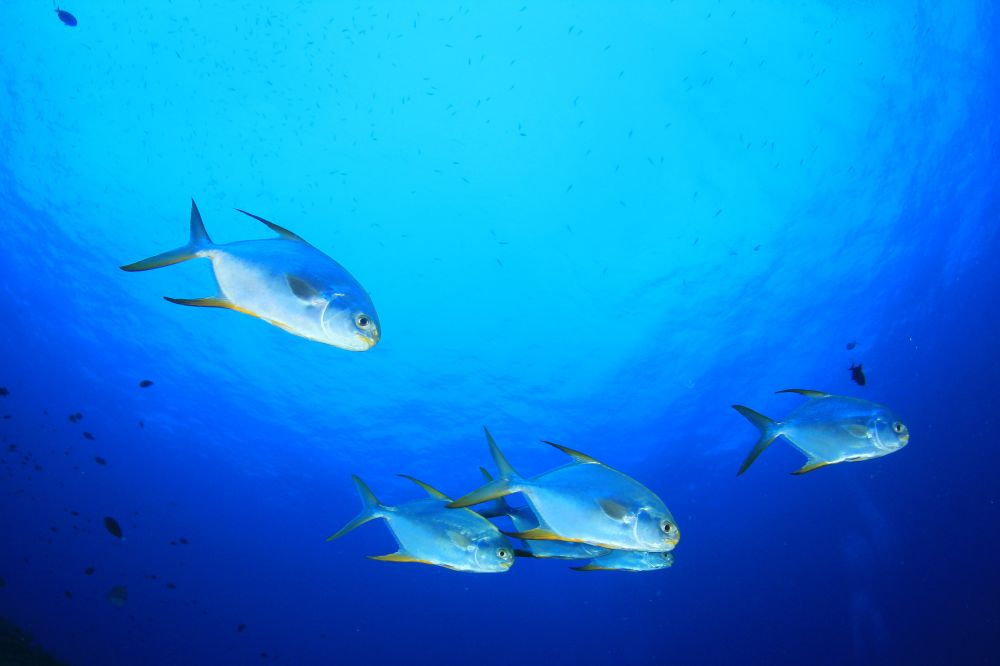
The African Pompano belongs to the Carangidae family. The maximum size can reach up to 1.50 m, but the average size is one meter. It breeds in spring and autumn. It can be fished during the hot seasons. Like many carangidae, it is a deep and laterally compressed fish, which have the deepest point of the body between the origin of the dorsal and anal fins and the head and tail tapering on either side. The dorsal and ventral profiles are also convex, the main characteristic of the adult being its more curved head compared to the more angular head profile of African Pompano. The species has 4 to 7 spines visible in the first dorsal fin, followed by a single spine and 18 to 20 soft rays in the second dorsal fin. The anal fin has two spines followed by 15 or 16 soft rays, while the pectoral fin is long and curved. The skin of the fish appears flake-free, but has tiny, embedded scales scattered over the body. The lateral line has a strong and moderately long dorsal arch, with a posterior section of 12 to 30 scales. Juvenile with filamentous rays at the anal and dorsal fins. Juveniles are characterized by their "spinning" appearance, characterized by filaments dragging anal and dorsal fins that retract with age. During maturation, the species also becomes more elongated and more similar to other types of jacks. The body is a silvery blue metallic to blue-green above, being the darkest on the head and upper shoulders, while the underside is more silvery. Juveniles have 5 chevron-sha
The African Pompano is a famous fish you can catch in Newport Beach.Our fishing forecast of Newport Beach indicates the best time to go fishing in this city.
Our fishing forecast of Newport Beach indicates the best time to go fishing in this city.
Our fishing forecast of Newport Beach indicates the best time to go fishing in this city.
